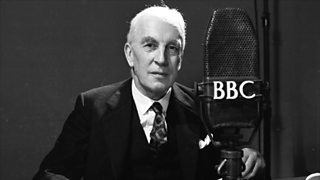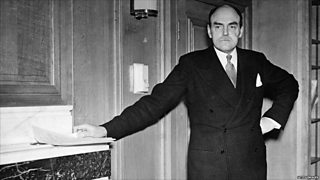About The Reith Lectures
The Reith Lectures were inaugurated in 1948 by the Βι¶ΉΤΌΕΔ to mark the historic contribution made to public service broadcasting by Sir John (later Lord) Reith, the corporation's first Director-General.
John Reith maintained that broadcasting should be a public service which enriches the intellectual and cultural life of the nation. It is in this spirit that the Βι¶ΉΤΌΕΔ each year invites a leading figure to deliver a series of lectures on radio. The aim is to advance public understanding and debate about significant issues of contemporary interest.
The very first Βι¶ΉΤΌΕΔ Reith lecturer was the philosopher, Bertrand Russell who spoke on "Authority and the Individual". Among his successors were Arnold Toynbee (The World and the West, 1952), Robert Oppenheimer (Science and the Common Understanding, 1953) and J.K. Galbraith (The New Industrial State, 1966). The Reith lectures have also been delivered by the Chief Rabbi, Dr Jonathan Sacks (The Persistence of Faith, 1990), Dr Steve Jones (The Language of the Genes, 1991), Michael Sandal (A New Citizenship, 2009), Martin Rees (Scientific Horizons, 2010) and Aung San Suu Kyi and Eliza Manningham-Buller (Securing Freedom, 2011). Most recently the Reith Lecturers have been Niall Ferguson (The Rule of Law and Its Enemies, 2012), Grayson Perry (Playing to the Gallery, 2013), Dr. Atul Gawande (The Future of Medicine, 2015), Stephen Hawking (Black Holes, 2016), Kwame Anthony Appiah (Mistaken Identities, 2016) and Hilary Mantel (Resurrection: The Art and Craft, 2017).
Related links
-
![]()
Reith in pictures
Significant international thinkers deliver the Βι¶ΉΤΌΕΔ's flagship annual lecture series.
-
![]()
Professor Laurie Taylor marks the 60th anniversary of the Reith Lectures.
-
![]()
Find out the different ways you can listen to the Reith lecture and Radio 4.



